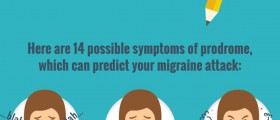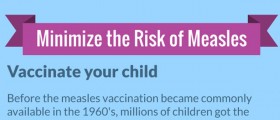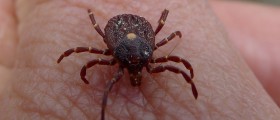
What Migraine Does to Your Brain
Migraine changes your brain in many of the same ways as stroke, and not just when you have a headache.

Why You Can Die From Measles Even Decades After Catching It
Measles is much more than a benign childhood disease, with an estimated 114,000 deaths annually. New research shows that measles is even deadlier than previously thought, showing that there's no excuse not to vaccinate your children.

Curiouser and Curiouser: Alice in Wonderland Syndrome and Other Migraine Auras
25% of migraineurs experience migraine with aura. Here, we look at the different kinds of aura, and explore how migraineurs can keep in optimum health.

Migraine: Triggers You May Not Know About
Sometimes migraines can seem to come out of the blue. However, there's always a trigger. Here, we examine 17 common migraine triggers, and find out what you can do.

Prodrome: Signs A Migraine's On The Way
Up to 80% of migraine sufferers experience prodrome. Here, we explore common prodrome symptoms, and find out what it could mean for your treatment.

Is Alzheimer's Reversible?
Experts project that over the next 35 years 13 million people in the United States and nearly 200 million people around the world will develop Alzheimer's disease. But a small-scale project suggests that Alzheimer's may be curable in its early stages.

Feeding Tubes for Dementia Patients May Become a Thing of the Past
A dirty secret in eldercare is that many more people pass on as a result of euthanasia than you might think. End of life for people with dementia often results from "failure to thrive," a code word for not giving them food or water.

Our Genes Multitask
Raspberries have 1/8 as many genes as humans. That isn't surprising. A raspberry isn't as complex as a human. But onions have 12 times as many genes and amoebas have 200 times as many genes as people. What is it about people that makes our DNA so simple?

Multiple Sclerosis: Who Will Stay Well? Who Will Develop Relapsing MS?
Not everyone who has the symptoms of MS goes on to develop progressive disease. A new test will enable doctors to identify MS patients who have "clinically isolated" symptoms who may be spared the expense and side effects of immune suppressant drugs.

Long-Term Antibiotic Use Not As Successful In Managing Lyme Disease
Lyme disease is usually treated with a 2-3 weeks course of antibiotics. Long-term antibiotic use in Lyme disease, which still presents with symptoms, is not recommended as this will not improve the scenario.

